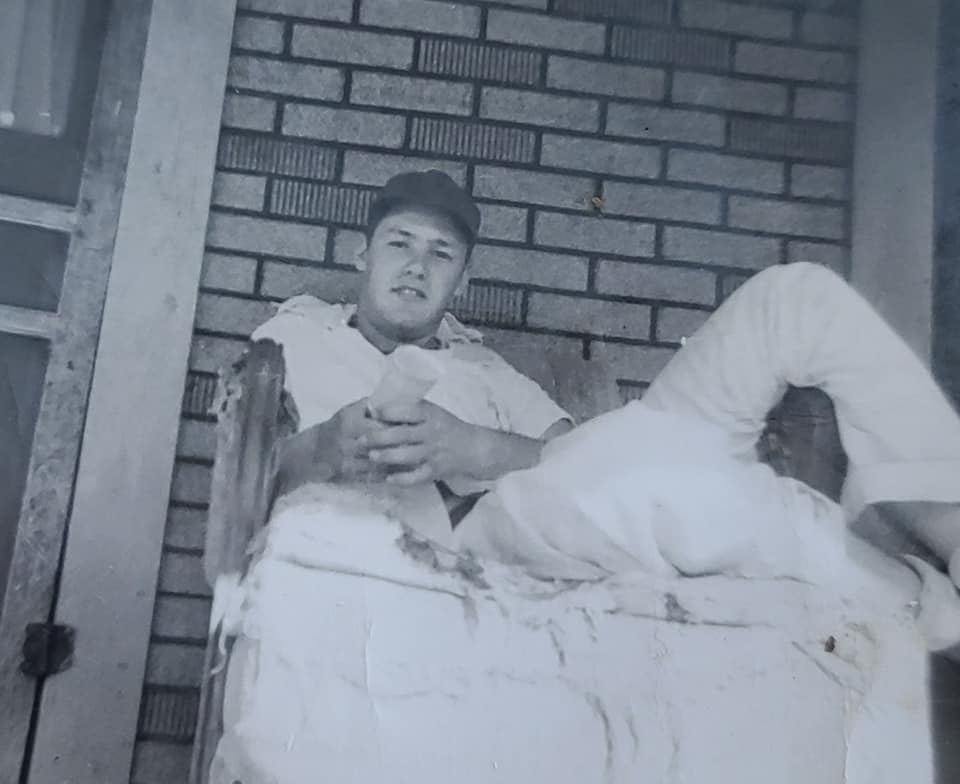“Give ear, O my people, to my teaching;
incline your ears to the words of my mouth!
I will open my mouth in a parable;
I will utter dark sayings from of old,
things that we have heard and known,
that our fathers have told us.
We will not hide them from their children,
but tell to the coming generation
the glorious deeds of the Lord, and his might,
and the wonders that he has done.” (Psalm 78:1-4)

When I was growing up in south Louisiana, I spent a lot of time with my grandparents on the farm. My grandfather was a beefmaster rancher and I remember many a weekend and summer spent in the fields tending the cattle, baling hay, moving them from the front fields to the back 40 acres. It was during this time with my grandfather that he would regale me and my brothers with stories of his younger days as he played that great American pasttime – baseball.
I remember his passionate adoration of Mickey Mantle as he told us how he could do anything you needed to win a game at any time. If you needed a bunt to move a man into scoring position, Mickey was your man. I remember how he told us of the 1961 home run race between Mantle and his teammate Roger Maris (who ultimately won with 61 homers).
The joy that was evident in his heart and his eyes as he would tell the story of his childhood heroes was captivating and it inspired me to play ball in my youth. My grandfather rarely if ever missed one of my games as I was growing up. He was always there on the sidelines cheering us on and when I was in the dugout waiting my turn to go on-deck, he would often be near our bench giving me pointers and scouting tips on how the pitcher was throwing and what I needed to do to attack.

In a lot of ways, the Psalms often give us a similar glimpse of this same excitement and teaching. The goal of all teaching is for us to learn how to be better than we are today by leaning on the lessons of years gone by. This Psalm is no exception.
First, we must be willing to hear and absorb the wisdom of the ages gone by, even if it isn’t pleasant to hear. Unless we lean into the teaching, we will not fully understand what is being taught. History is full of lessons that we must all learn not to take for granted. It is full of wonders to celebrate like the art and majesty of the Florentine Renaissance. It is full of the darkness of the Middle Ages and great wars of the 20th century. History has both good and bad points, but it does not discriminate. History simply records. It is up to the wise to discern the lessons to be learned from the past and pass on to the future generations.
Secondly, much like with the history of Israel, not all of our history is good news. There is plenty of bad news to share, but it is necessary that we remember the failures of the past so that we are not doomed to repeat them in the future. Today we see an aggressive movement to sanitize our history and eliminate or revise the mention of our dark times, instead of recognizing our failures. By sanitizing our history, we also eliminate and revision many of our successes. Most of our national successes are a direct result of our response to our failures. That is why the Psalmist declared that “we will not hide them from their children but tell the coming generation”.
Finally, the Psalmist goes on to tell a detailed listing of all the times that the people of Israel failed God and angered Him with their doubt and their sin. But He also goes into great detail about how God still loved Israel in spite of their failures and how He proved to be faithful to His word and His promises. The Psalmist tells of “the glorious deeds of the Lord, and His might, and the wonders that He has done.”
We must remember that stories of history are there for our edification, our growth, and our improvement. Additionally, we must remember that that the successes of our past are often predicated by our response to our failures. And most importantly, we must tell of the wonders that God has wrought, through the good and the bad. We cannot deny the failings of the past, but we must not forget the context of the successes of the past as well. This makes the good news that much sweeter when we truly understand how bad the bad news really was. And that is what gives us cause for celebration!